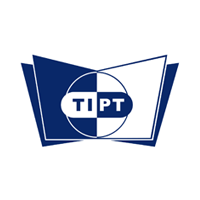
Research and development is crucial in helping develop innovative drugs that could have serious therapeutic and life-saving value for patients. However, researching new drugs takes massive amounts of time and money, which entails a huge amount of risk for pharmaceutical companies.
The pharmaceutical industry needs to keep researching and developing new products in order to thrive. Indeed, a big challenge facing the industry is figuring out how to promote research while minimizing risk. In part, overcoming that challenge will depend on pharmaceutical companies employing professionals who not only have a passion for and knowledge of research, but who have hands-on experience developing new drugs.
If you are considering a career in research and development, you can be a part of pharmaceutical innovation by gaining the skills and expertise that pharmaceutical companies need on their R&D teams. Read on to learn how.
Find an R&D Pharmaceutical Program with State-of-the-Art Facilities
There’s no substitute for hands-on learning when it comes to developing new pharmaceuticals. That’s why, when you are searching for a program in pharmaceutical research and development, you should seek out one that has its own advanced facilities onsite. The Toronto Institute of Pharmaceutical Technology (TIPT), for example, boasts a state-of-the-art GMP- and GLP-compliant research laboratory and manufacturing plant. During your Core Module, you will work on a team project at these facilities to learn how pharmaceuticals are designed, formulated and manufactured.
A Co-Op Internship is an Unrivalled Opportunity to Learn About Research
If you want to promote the research and development of new drugs, then you need to work with people who are on the cutting edge of research. That means getting an internship that will allow you to work on actual drug development, either under the direction of your school’s faculty or on a commercial project at a pharmaceutical company. At TIPT, all of our students in pharmaceutical research and development training are required to complete a co-op internship. Internships may be completed at our facilities, where our faculty helps spearhead new research, or at a pharmaceutical company.

Anticipating Problems Will Be Key to Promoting Pharmaceutical Research
Drug research projects sometimes end in failure. In many cases, tests and clinical trials reveal something about the compound that was not noticed before, which can make it unsuitable for human use. Failure, in fact, is a normal part of research and development. It is only through failure that researchers can learn what works and what doesn’t. But being able to anticipate some failures early on during the chemistry, manufacturing and control (CMC) stage of development helps pharmaceutical companies to avoid wasting resources on projects that end up being unusable.

The best way of anticipating problems in drug development is by testing extensively early on. Generating as much data as possible in the early stages of development can reveal potential problems with the compound that may otherwise not have been noticed until later, such as issues with its stability or solubility. An R&D pharmaceutical program that emphasizes taking the knowledge you have already acquired in your Bachelor of Science degree and applying it in a laboratory setting will equip you to see how lab testing can reveal potential issues with new drug ideas.
Are you ready to pursue pharmaceutical research and development at a state-of-the-art facility?
Contact Toronto Institute of Pharmaceutical Technology to learn more about our pharmaceutical programs!
